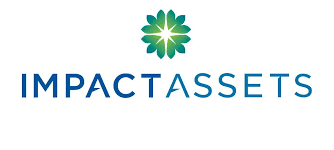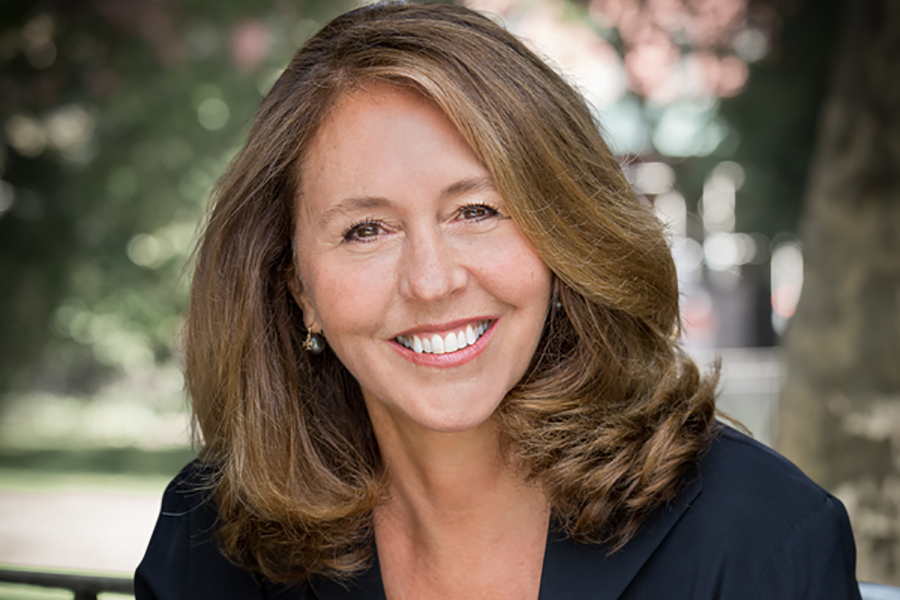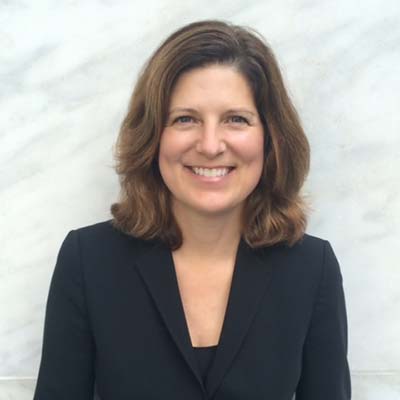Career paths take people on fascinating life journeys. For Kim Wright-Violich (above), the crossroads along her career path have provided opportunities for exciting and meaningful work.
 Wright-Violich is a Managing Partner at Tideline, an impact investing consulting firm, and a member of the ImpactAssets Board of Directors. Through a mosaic of a career spent in financial services, philanthropy and academia, she has developed a unique and informed perspective on the rapidly growing world of impact investing.
Wright-Violich is a Managing Partner at Tideline, an impact investing consulting firm, and a member of the ImpactAssets Board of Directors. Through a mosaic of a career spent in financial services, philanthropy and academia, she has developed a unique and informed perspective on the rapidly growing world of impact investing.
“When you can connect the pace and rapid iteration of private-sector with the solutions-focused, mission-driven orientation of the social sector, work becomes intensely gratifying and meaningful,” said Wright-Violich. “That alignment of purpose and profit is what impact investing is all about, and it’s much more powerful than business or philanthropy or even government efforts in isolation.”
Here are five key learnings Kim has discovered on her impact investing journey.
1. Investors’ perceptions are changing rapidly
Since co-founding Tideline in 2014, Wright-Violich has seen a sea-change in interest and demand for impact investing. Individuals, family offices, foundations, and other early adopters of impact investing were joined in in the last couple years by mainstream and institutional investors exploring impact investing. Wright-Violich says, “the market reached a tipping point when expectations shifted from an assumption that investors would need to compromise on returns to achieve positive social and environmental impact to an openness and even belief that impact investing could achieve market rate returns, would often mitigate risks, and even occasionally provide higher return opportunities.” Growth is accelerating in the $500 billion global impact investing market driven by both individual and institutional investors demand. Leading organizations in impact investing such as ImpactAssets, Tideline, and others are setting precedents, defining best practices, and influencing how this burgeoning sector is developing.
2. Impact Investing Knows No Political Bounds
Some investors associate impact investing with liberal political views, partially due to roots in the student-driven divestiture movements but Wright-Violich sees a big tent when it comes to impact. “This should appeal to conservatives who believe in small government and believe we should not rely on the government to exclusively solve social problems,” she says. “The private sector has a significant role to play. Additionally, the faith-based investors are becoming increasingly interested in aligning their values with their investing.” Of the three sectors of the economy, she says, the social sector is not big enough and struggles from not having a market feedback mechanism, which prevents it from moving as quickly as it could.
Government is big and cumbersome, and political winds change, making a sustained effort challenging, particularly when it involves some political risk. “The private sector is uniquely positioned to experiment and to make things happen at scale without abandoning its primary purpose of driving the economy.” Wright-Violich is also encouraged by the recent decision by the Business Roundtable announcement to expand the organization’s Principles of Corporate Governance, noting that the purpose of a corporation should no longer be exclusively maximizing shareholder value. The group of 200 CEOs also said companies must also invest in their employees, protect the environment and deal fairly and ethically with their suppliers, according to the New York Times.
3. Learn by teaching
Although her work as founding CEO of Schwab Charitable, a donor-advised fund, had given Wright-Violich a leg up when it came to understanding impact investing, teaching the subject at the Haas School of Business deepened her knowledge. “I took to heart the quote that says, ‘If you want to learn something, read about it. If you want to understand something, write about it. If you want to master something, teach it.’” She joked she had to race to keep ahead of her students—and sometimes learned from them. Having that opportunity to learn through teaching was pivotal to making the deliberate shift in focus to impact investing. “Consistently, over the last twenty years, my goal has been to align what was meaningful to me and my career.”
She first pursued that by helping to democratize philanthropy in a financial service firm donor-advised fund, and now she is promoting impact investing in a rapidly growing donor-advised fund ImpactAssets as a board member and contributing to the development of the impact investing market as a Managing Partner at Tideline. “Expanding my expertise kept me on the steep part of the learning curve, which is exciting. I believe that you should invest in your expertise, rather than assuming passion alone will carry you. Knowledge does not necessarily translate from one related specialty to another without putting in the work to rigorously educate yourself.”
4. It’s a long game
Impact investing is not yet ready, though it may be soon, for the risk-averse or the impatient investors, particularly because impact investors are cutting new ground and often the underlying investment and enterprises are young. “There are a few unicorns in the impact investing space,” says Wright-Violich. “However, more often and more likely they are just good, healthy and ethical businesses that will grow over time, so it is usually best for those with a longer investment horizons” The dividends social, environmental, and financial can be surprisingly positive and meaningful for those with patience.
5. Not a cure-all
While the rapid growth in interest in impact investing, development of more sophisticated practices are positive signs, Wright-Violich cautions against raising unreasonable expectations. “The promise and hope generated by the growth is exciting, but impact investing is not the panacea. It’s not going to solve all social problems, nor will it grow without hiccups,” she says. Some of those missteps will be a natural outcome of learning and iterating, and unintended consequences, but some will result from short cuts and abuses such as “impact washing.” Tideline was founded on the premise it could help avoid some of those risks and fulfill the promise. Issues like climate change and social inequality will require a multitude of approaches and a full array of solutions—from government attention and policy, philanthropic and non-profit initiatives including acting as catalytic capital, and the private sector. “And where you can authentically and thoughtfully align mission and investment money, you can drive substantial financial and impact results. That won’t happen every time, but it is powerful when it works.”




































